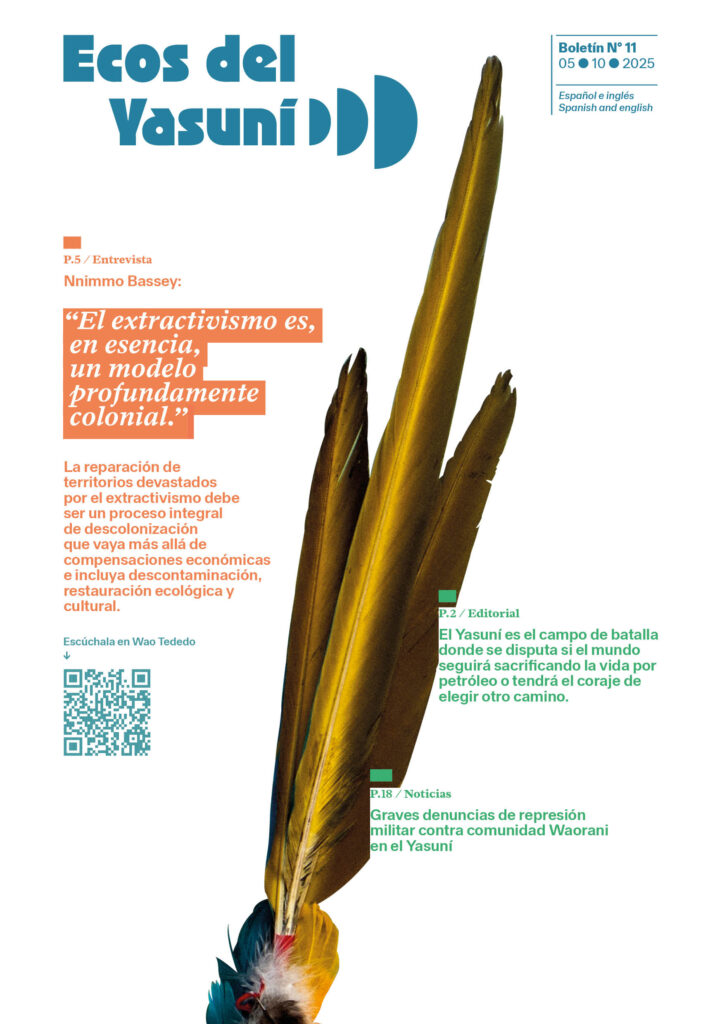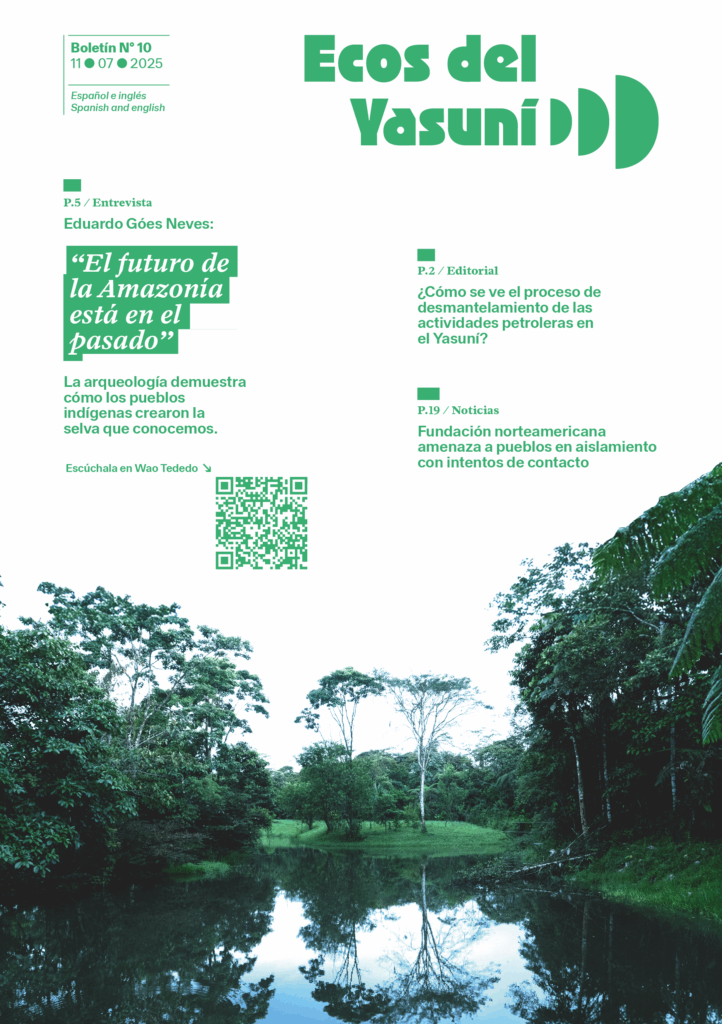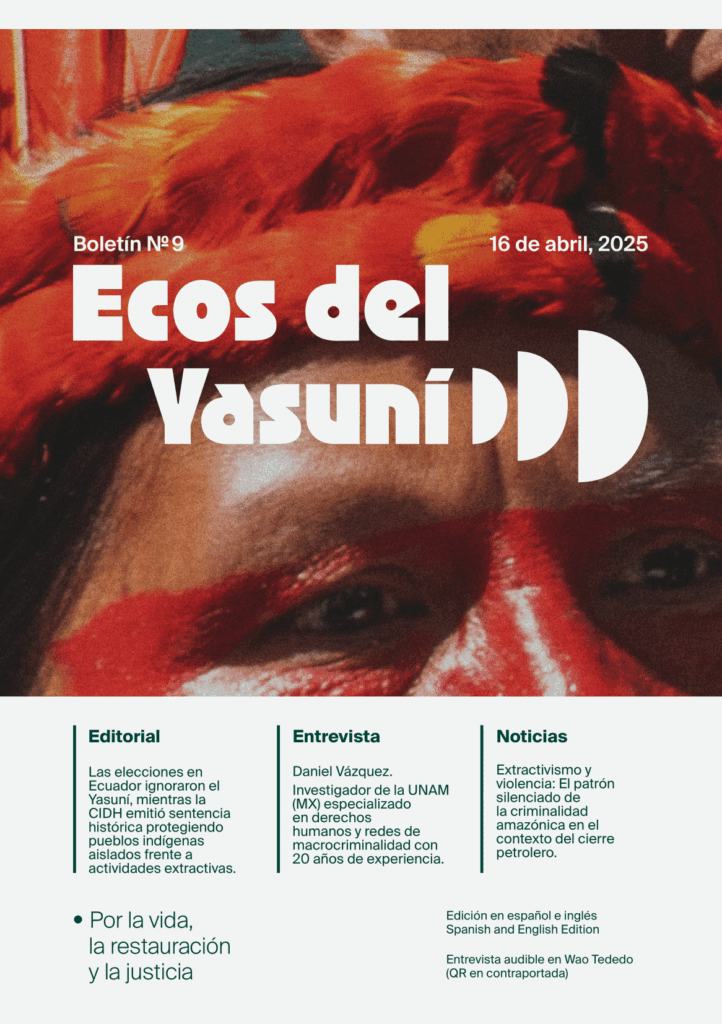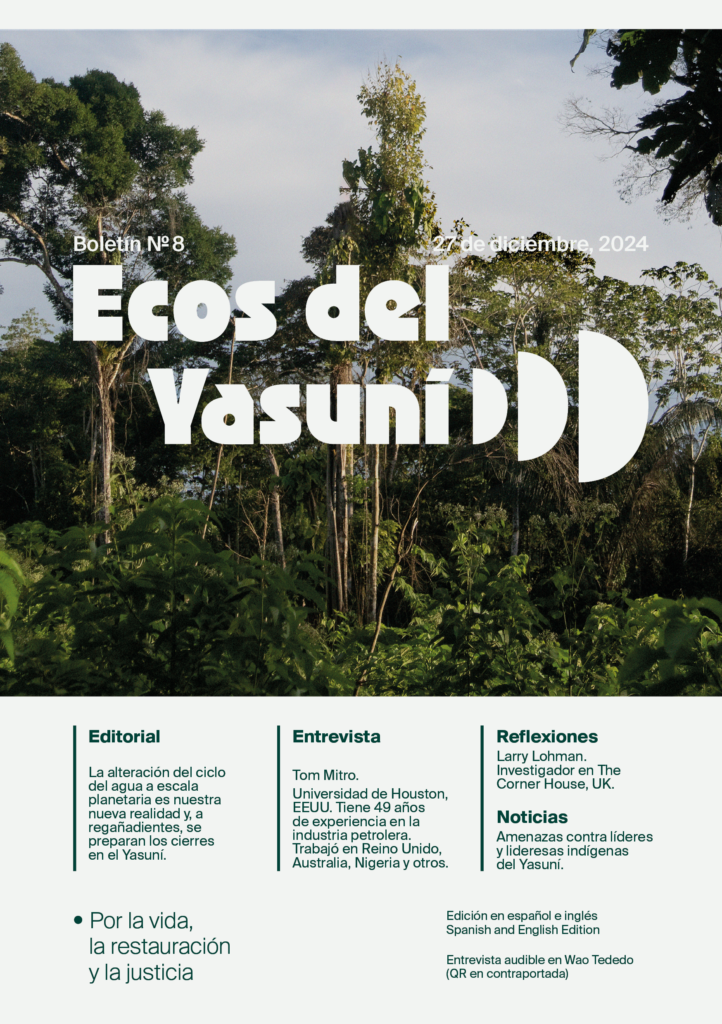The campaign for the “Yes to Yasuní” referendum emerged from diversity and multiplicity. It was not a homogeneous national campaign, but rather a mosaic of youth organizations across different territories of the country, where multiple organizations and social struggles converged with their own strategies and graphic expressions, united by the joy and hope of building a different future. This diversity of efforts crystallized on August 20, 2023, when nearly 60% of Ecuadorians decided to halt oil exploitation and begin the comprehensive restoration of the Yasuní and its peoples, marking an unprecedented moment in global history. No candidate enjoyed as much support as Yasuní, and this fact must be decisive when thinking about how we should act politically in the future.
This historic decision expressed hope in its two fundamental dimensions: as confidence in achieving something concrete (the effective protection of Yasuní) and as a state of mind that makes the possible visible (the imagination of a post-extractive Ecuador). The unprecedented events of 2023 opened a crack in what seemed like an inevitable destiny of extraction, redefining the scope of what can be thought not only in Ecuador but also in other territories dependent on extractivism.
Yasuní’s victory transcends the challenge to extractivism as an economic practice to question the entire conceptual architecture that sustains it. When a population democratically decides to keep oil underground, it challenges the linear notion of progress, the separation between nature and culture, the supremacy of monetary value, profit and accumulation, and the short-term conception of time. This epistemic challenge is connected to Indigenous knowledge and ways of knowing, whose relationship with nature has historically resisted extractivism.
As an ethical horizon, Yasuní proposes a profound reformulation of values: it calls for a radical inversion where the highest value lies in the recognition and care of the multiple forms of life and their interrelations; it establishes an ethical temporality that prioritizes the future over immediate benefit; it tangibly expands the circle of moral consideration towards the non-human; it democratizes ethical decisions about the future; and it proposes an ethics of limits in contrast to infinite growth.
Today, the challenge lies in transforming this historic crack into a walkable path: building an economy not dependent on exploitation, translating that historic “Yes” into new ways of relating to nature, and turning this unprecedented moment into a new common sense. Voices and expertise from different territories have joined this challenge—their analyses, reflections, and contributions are Echoes of the Yasuní.
